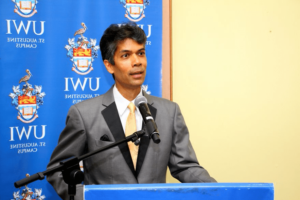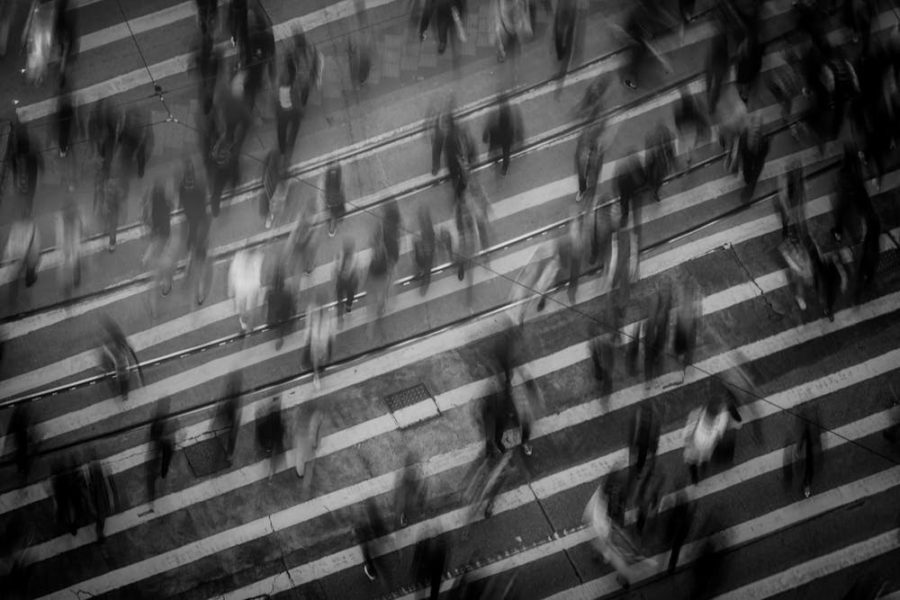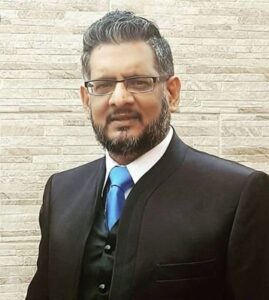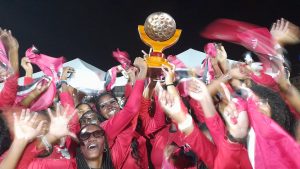
EACH individual has a role to play, be it policy-maker, politician researcher, activist, student, religious leader, office worker, unemployed, vendor, insurance agent and academic.
Each person must decide on his or her role because there is too much useless talk and wasted hours at conferences, in documentaries, committees, seminars and workshops.
New terminology, speeches, commissions and grandiose ideas of an alternative economic systems all come to naught.
Likewise, books filled with ideas and projects on alleviating distress in developing countries have often failed to materialise into useful remedies and are therefore useless in alleviating the suffering of the real world. For too long international and local efforts have a limited impact, narrow scope and often remain theoretical.
Now is the time for direct action and visible results. An illustration is the implementation of Africa’s Great Green Wall to curb desertification and help with food insecurity and climate change.
Ten African countries are involved in this project and organisations as the Food and Agriculture Organization of the United Nations and African Union are playing a major role. Similarly, organizations as the World Bank and Jal Bhagirathi Foundation have been involved in projects to provide clean drinking water for India.

There is a need to educate and increase public awareness and solve the multifarious problems. Ideas and plans need to be properly assessed, enforced and monitored. We need to take action to ensure our ideas, slogans and dreams become a reality. Obviously, when we stop paying lip-service and offering token assistance, only then we can seriously embark on our mission.
History has continuously proven that revolutions, coups, revolts, violent protests — all bring sadness, unnecessary loss of lives and wanton destruction. Often the change resulting from violence is only temporary and at times there is a return to the original scenario or the situation only becomes worse.
Throughout the world there must be a silent revolution, bloodless and without expectation of glory and honours. The major goal must be to save lives in developing countries. The ultimate challenge of this millennium is to effectively utilise the world’s severely limited resources to alleviate the depressing situation that faces more than half of the world’s population.
Dr Jerome Teelucksingh is an activist. He initiated the inaugural observances of International Day for the Elimination of Violence Against Men and Boys (January 31) and World Day of the Boy Child (May 16). He has made academic presentations at tertiary institutions including Harvard University and Oxford University.
See other articles by Dr Jerome Teelucksingh on AZP News:
The Need for a Social and Moral Revolution
The Law of Supply and Demand in Developing Countries
End the Dependency for Developing Countries
T&T Carnival and the Emperor’s New Clothes
The Influence of Labour on Caribbean Integration
The illusion of political Unity
Presbyterians in Trinidad: Humble Missionaries, Local Workers
Religious Plurality: Curse or Blessing
Caribbean Youth Need Optimism, Patriotism
Rethinking Identities in Caribbean, Latin America
November 19: All Inclusive International Men’s Day
Should International Agencies be Blamed for Unemployment
A Need to Observe Word Unemployment Day
An Ideology for the Trade Union Movement
The Man who Couldn’t be Prime Minister
Social Outburst vs Social Revolution
Challenges of the Men’s Movement
If George Floyd was Denied Parole
The Meaning of Indian Arrival Day in T&T
International Men’s Day – A Way of Life
Wounds that cause school violence
May Day: A Time for Solidarity, Strength
Who Coined the Term ‘Black Power’
The illusion of political Unity
Presbyterians in Trinidad: Humble Missionaries, Local Workers
Religious Plurality: Curse or Blessing
Caribbean Youth Need Optimism, Patriotism
Rethinking Identities in Caribbean, Latin America
November 19: All Inclusive International Men’s Day
Should International Agencies be Blamed for Unemployment
A Need to Observe Word Unemployment Day
An Ideology for the Trade Union Movement
The Man who Couldn’t be Prime Minister
Social Outburst vs Social Revolution
Challenges of the Men’s Movement
If George Floyd was Denied Parole
The Meaning of Indian Arrival Day in T&T
International Men’s Day – A Way of Life
Wounds that cause school violence
May Day: A Time for Solidarity, Strength
Who Coined the Term ‘Black Power’
![]()












